| Weight | 1 lbs |
|---|---|
| Dimensions | 9 × 5 × 2 in |
| host | mouse |
| isotype | IgG1/κ |
| clonality | monoclonal |
| concentration | concentrate, predilute |
| applications | IHC |
| reactivity | human |
| available size | 0.1 mL, 0.5 mL, 1 mL concentrated, 7 mL prediluted |
mouse anti-Thyroid Stimulating Hormone monoclonal antibody (ZM294) 6384
Price range: $160.00 through $528.00
Antibody summary
- Mouse monoclonal to Thyroid Stimulating Hormone
- Suitable for: Immunohistochemistry (formalin-fixed, paraffin-embedded tissues)
- Reacts with: Human
- Isotype:IgG1/κ
- Control: Pituitary
- Visualization: Cytoplasmic
- 0.1, 0.5, 1.0 mL concentrated, 7 mL prediluted
mouse anti-Thyroid Stimulating Hormone monoclonal antibody ZM294 6384
| target relevance |
|---|
| Protein names Thyrotropin subunit beta (Thyroid-stimulating hormone subunit beta) (TSH-B) (TSH-beta) (Thyrotropin beta chain) (Thyrotropin alfa) |
| Gene names TSHB,TSHB |
| Protein family Glycoprotein hormones subunit beta family |
| Mass 15639Da |
| Function FUNCTION: Indispensable for the control of thyroid structure and metabolism. |
| Subellular location SUBCELLULAR LOCATION: Secreted. |
| Structure SUBUNIT: Heterodimer of a common alpha chain and a unique beta chain which confers biological specificity to thyrotropin, lutropin, follitropin and gonadotropin. |
| Involvement in disease DISEASE: Hypothyroidism, congenital, non-goitrous, 4 (CHNG4) [MIM:275100]: A form of central hypothyroidism, a disorder characterized by insufficient stimulation by thyroid stimulating hormone of an otherwise normal thyroid gland. CHNG4 is an autosomal recessive form characterized by isolated thyrotropin deficiency that, if untreated, results in severe growth retardation and intellectual disability. {ECO:0000269|PubMed:12364478, ECO:0000269|PubMed:1971148, ECO:0000269|PubMed:36001021}. Note=The disease is caused by variants affecting the gene represented in this entry. |
| Target Relevance information above includes information from UniProt accession: P01222 |
| The UniProt Consortium |
Data
 |
| Formalin-fixed, paraffin-embedded human pituitary adenoma stained with anti-TSH antibody using peroxidase-conjugate and DAB chromogen. Note the cytoplasmic staining of tumor cells |
Publications
| pmid | title | authors | citation |
|---|---|---|---|
| We haven't added any publications to our database yet. | |||
Protocols
| relevant to this product |
|---|
| IHC |
Documents
| # | SDS | Certificate | |
|---|---|---|---|
| Please enter your product and batch number here to retrieve product datasheet, SDS, and QC information. | |||
Only logged in customers who have purchased this product may leave a review.
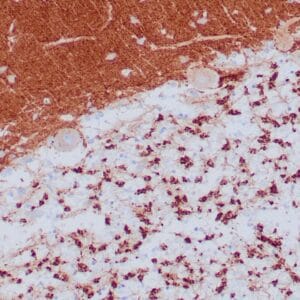
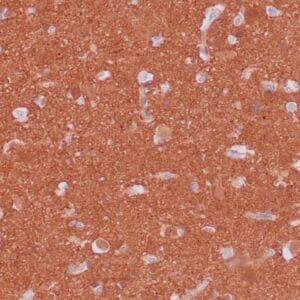
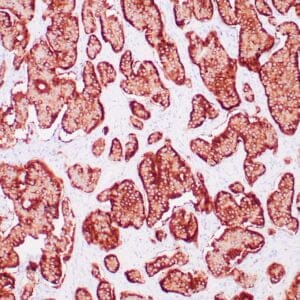
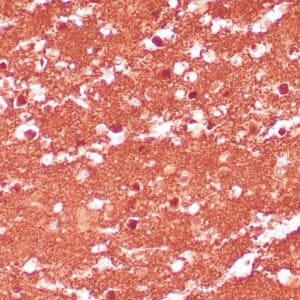
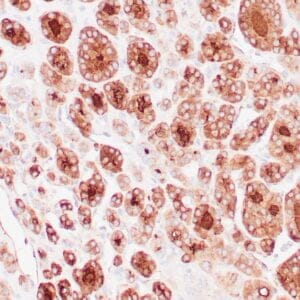
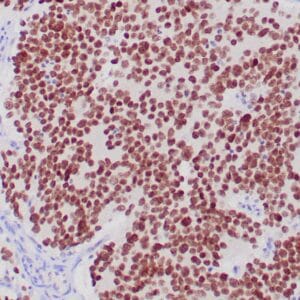

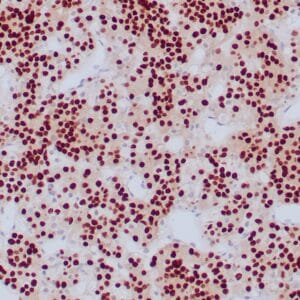
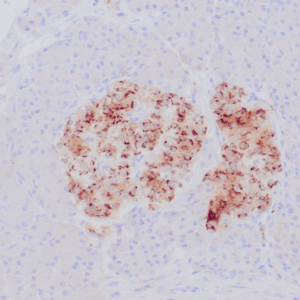
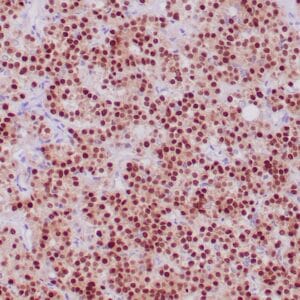
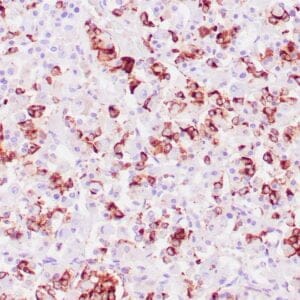

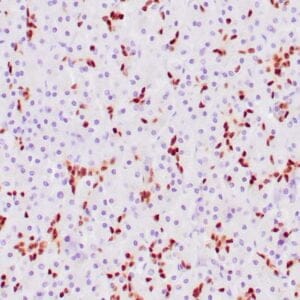
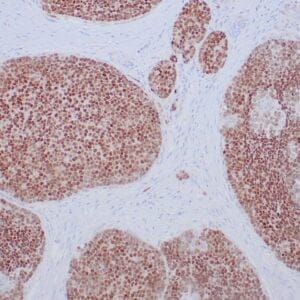
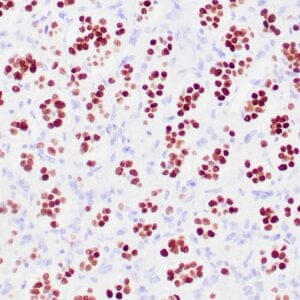
Reviews
There are no reviews yet.